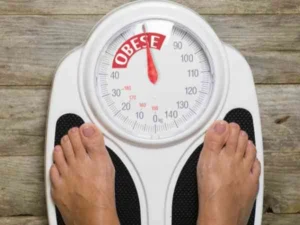What to Know Which Food is Good for Gut Health?
Taking care of your gut health is essential for feeling good and staying well. Your gut affects everything from how well you digest food to how your immune system works. So, what is which food is good for gut health? Let’s break down the best foods and tips to keep your gut happy and healthy. By the end of the blog after paying attention to specific needs like the best food for intestine infection and the best foods for gut health and weight loss for your diet to your health goals. And don’t forget to start your day right with healthy gut foods for breakfast to set the tone for a healthy day.

Why Gut Health Matters?
Your gut, or digestive system, is more than just a place where food goes. It helps break down food, absorb nutrients, and get rid of waste. It’s also home to a huge number of bacteria, called the gut microbiota, which play a big role in your overall health.
If your gut bacteria are out of balance, you might face issues like digestive problems, weakened immunity, or even mood changes. Knowing which food is good for gut health can help you choose foods that support a balanced gut and better health.
How to Increase Good Bacteria in Your Gut Naturally?

To keep your gut healthy, you need to encourage the growth of beneficial bacteria, known as probiotics. Here’s how you can naturally increase good bacteria in your gut:
- Eat Probiotic Foods: These foods are packed with live beneficial bacteria. Good choices include yogurt, kefir, sauerkraut, and kimchi.
- Include Prebiotic Foods: Prebiotics are types of fiber that feed the good bacteria in your gut. Foods like garlic, onions, bananas, and asparagus are great sources.
- Try Fermented Foods: Foods that have been fermented, like kombucha or tempeh, are also rich in probiotics.
- Use Antibiotics Wisely: Antibiotics can kill both bad and good bacteria. Only use them when necessary, and always as directed by your doctor.
Top 10 Foods for Gut Health

Some foods are good for your gut. Here are the top 10 foods for gut health that you should add to your diet:
- Yogurt: Full of probiotics, it helps keep your gut bacteria balanced. Choose plain yogurt without added sugar.
- Kefir: This fermented milk drink has many probiotics, it is good for gut health.
- Sauerkraut: Made from fermented cabbage, sauerkraut provides probiotics and fiber.
- Kimchi: This spicy fermented vegetable dish is rich in probiotics and good for your gut.
- Garlic: Garlic acts as a prebiotic, feeding your good bacteria.
- Onions: Onions are another great prebiotic food.
- Bananas: Bananas are easy to digest and help feed good bacteria.
- Asparagus: High in prebiotics and fiber, asparagus supports your gut health.
- Oats: Oats provide soluble fiber that helps keep your gut bacteria healthy.
- Chia Seeds: Full of fiber and omega-3 fatty acids, chia seeds are great for gut health.
By adding these top 10 foods for gut health, using tips on how to increase good bacteria in gut naturally, and learning how to improve gut health naturally, you can take positive steps toward better digestive health.
How to Improve Gut Health Naturally?

Improving your gut health doesn’t just come from eating the right foods. Here are some natural ways to support your gut:
- Stay Hydrated: Drinking plenty of water helps keep your digestive system running smoothly.
- Manage Stress: Stress can negatively affect your gut. Techniques like meditation and deep breathing can help manage stress levels.
- Exercise Regularly: Physical activity promotes healthy digestion and supports a balanced gut microbiota.
- Eat Smaller, Frequent Meals: Eating large meals can be hard on your gut. Smaller, more frequent meals are easier to digest.
- Get Enough Sleep: Quality sleep is important for gut health. Aim for 7-9 hours per night.
- Limit Processed Foods: Processed foods often contain ingredients that can harm your gut. Stick to whole foods whenever possible.
Best Food for Intestine Infection

If you are dealing with an intestinal infection, some foods can help you recover and feel better:
- Bone Broth: Rich in nutrients, bone broth helps heal the gut lining.
- Bananas: Gentle on the stomach, bananas provide essential nutrients and help with digestion.
- Plain Rice: Easy to digest, white rice helps firm up stool.
- Applesauce: Applesauce is easy on the stomach and provides vitamins.
- Steamed Vegetables: Steamed veggies are easier to digest than raw ones.
- Probiotic Foods: Foods like yogurt can help replenish good bacteria.
Best Foods for Gut Health and Weight Loss

Eating well for gut health can also help with weight management. Here are some best foods for gut health and weight loss:
- Leafy Greens: Spinach and kale are high in fiber and support gut health.
- Berries: Low in calories and high in antioxidants, berries are good for both gut health and weight management.
- Avocado: Full of healthy fats and fiber, avocados support gut health and weight control.
- Quinoa: A whole grain high in protein and fiber, quinoa is great for gut health and weight loss.
- Nuts and Seeds: Almonds and flax seeds provide fiber and healthy fats.
- Green Tea: Green tea supports digestion and can help with metabolism.
Healthy Gut Foods for Breakfast

Starting your day with a gut-friendly breakfast can set a positive tone. Here are some healthy gut foods for breakfast:
- Greek Yogurt with Fruit: Greek yogurt is full of probiotics, and fruit adds fiber and nutrients.
- Overnight Oats: Oats are rich in fiber and can be combined with probiotics like yogurt.
- Smoothies: Blend fruits, veggies, and kefir for a nutritious breakfast.
- Chia Pudding: Chia seeds are high in fiber and omega-3 fatty acids.
- Avocado Toast: Whole-grain toast with avocado offers fiber and healthy fats.
- Eggs with Vegetables: Eggs are a good protein source, and adding vegetables provides fiber.
Summing up,
Maintaining good gut health is important for your overall well-being. Understanding which food is good for gut health can help you make better food choices that support a balanced gut microbiota.
Frequently Asked Questions
Q1. What are the early signs that my gut health needs attention?
Ans – Look out for symptoms like bloating, stomach discomfort, and irregular bowel movements.
Q2. Can I support my gut health without taking probiotics?
Ans – Yes, eating foods high in prebiotics and maintaining a balanced diet can help.
Q3. How does stress affect my gut health?
Ans – Stress can disrupt the balance of good bacteria in your gut, leading to digestive problems.
Q4. What foods are best for quickly healing gut infections?
Ans – Bone broth, bananas, and plain rice are gentle on your stomach and can aid recovery.
Q5. How do fiber and prebiotics help with gut health?
Ans – They feed the good bacteria in your gut, helping them grow and keep your digestive system running smoothly.
Q6. Does regular exercise benefit gut health?
Ans – Yes, regular physical activity supports healthy digestion and a balanced gut microbiome.
Q7. Can improving my diet alone fix gut health issues?
Ans – A good diet is crucial, but combining it with proper hydration, stress management, and enough sleep is most effective.







